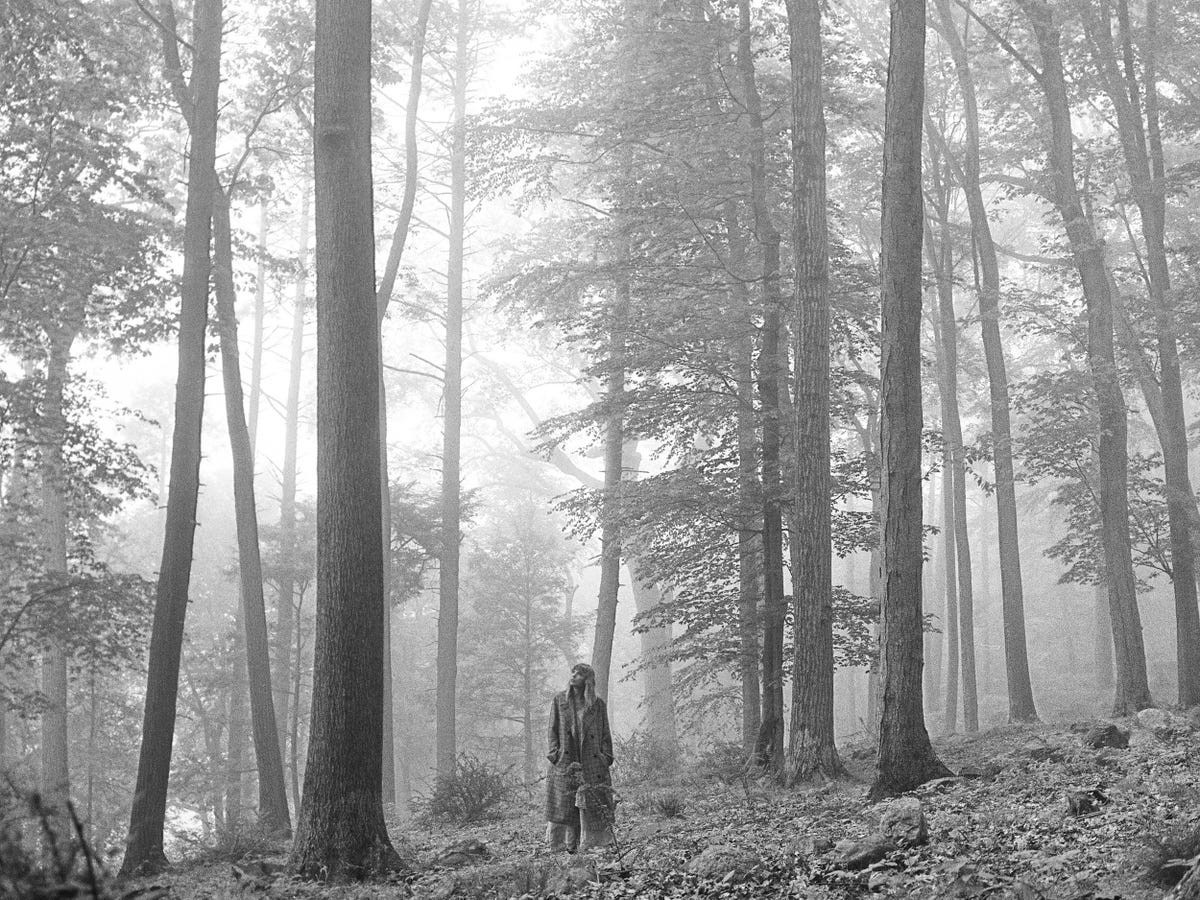Popular Reads
Top Results
Can't find what you're looking for?
View all search resultsPopular Reads
Top Results
Can't find what you're looking for?
View all search results‘Folklore’ sees Taylor Swift at her most contemplative and vulnerable
Folklore is proof that Taylor Swift is still one of the greatest storytellers of our generation; one who doesn’t need all the gloss and gossip to boost her art.
Change text size
Gift Premium Articles
to Anyone
T
aylor Swift was supposed to headline the Glastonbury Festival this summer and go on tour for her seventh album, Lover, this year. But these plans got canceled – no thanks to the coronavirus – forcing Swift to self-quarantine at home just like the rest of us.
While some people might have used this extra time to catch up on a book or master the art of banana bread, Swift was busy writing her eighth album, folklore.
Normally, when Swift releases a new album, there are months of strategic campaigns involving cryptic Instagram posts with plenty of Easter eggs and excerpts from her upcoming songs as captions. That was not the case with folklore.
Instead of giving her fans codes to decipher, Swift decided to announce the album 17 hours prior to its release. And funny enough, this low-key release actually matched the tone of the album, whose tracks are understated and full of heartache and feeling, with atmospheric sounds from the piano to the cello, thickening the vulnerability found in Swift’s beautiful lyrics. /life/2020/07/24/taylor-swift-announces-surprise-new-album.html
Swift stated in her Instagram post that she collaborated with her “musical heroes” in Aaron Dessner (from The National), Bon Iver and her long-time producer/co-writer Jack Antonoff in creating folklore. Granted, the whole album feels like something from The National, what with its indie-folk and alt-rock tone. But, of course, at its core, folklore is no one else but Taylor Swift. Here, she still touches on her favorite subjects: love and heartbreak. The only difference is it’s not just her love story. She draws inspiration from other people’s experiences too, and makes something truly remarkable of it.
In "epiphany", Swift tells the story of her grandfather Dean while he’s in the military, witnessing death all around him and experiencing the violent nature of war. “Keep your helmet, keep your life, son/ Just a flesh wound, here's your rifle/ Crawling up the beaches now,” she sings deliberately and with a gut-punch. Then in the second verse, Swift relates her grandpa’s traumatic experience to the current catastrophe that the world is dealing with at the moment – the pandemic. She explores the topic of pain from witnessing death all around from the perspective of medical professionals. “Someone's daughter, someone's mother/ Holds your hand through plastic now/ Doc, I think she's crashing out."
This retelling of other people's sagas is also found in the best track on the album, “the last great american dynasty,” in which Swift paints a musical biography of Rebekkah Harkness, a St. Louis-born heiress who previously owned Swift’s Rhode Island house. What’s truly fascinating about it is actually not how Swift voices a tale that is not hers by reconstructing it using her own point-of-view, but rather how she draws correlations between the story and her own. See, Harkness is a woman with a wild reputation, often known for polluting the family name of her upper-class husband. But she was actually misunderstood; she was just a middle-class woman whose whole persona didn’t fit her husband’s family’s idea of what a woman supposed to be and look like. As a result, she was ostracized by her community, thus making her the perfect parallel to Taylor Swift’s own reputation. “There goes the maddest woman this town has ever seen/ She had a marvelous time ruining everything.”
Of course, Swift’s previous songs have touched on this same subject. In fact, nearly every track in reputation is built around this idea. But where she usually embraces this side of her in ways that are powerful and unapologetic, if somewhat a little caustic, herein folklore, what she embraces is her own flaws and vulnerabilities. She’s not making a statement or desperately trying to repair the image that the media has given her; she’s just telling a story and a feeling. Even in "mad woman", another track on the album addressing the same topic as "the last great american dynasty", there’s a modest sense of sadness and devastation that feels deeply genuine as if she’s exhaling for the first time in forever.
These touches of sadness are extended to the rest of the tracks on the album too, emphasized even more with the piercing melodies from the piano and guitar. In “my tears ricochet”, not only does Swift show off her magnetic vocals, she also reflects on past relationships. In "mirrorball", Swift is at her most insecure and vulnerable. “I’ve never been a natural, all I do is try, try, try/ I’m still on that trapeze/ I’m still trying everything to keep you looking at me/ Because I’m a mirrorball.” In "betty", where Taylor recaptures her country roots, she tells the story of a teenage boy regretting his decision.
But it’s in "exile" where folklore is at its saddest. The song is about the dissolution of a romantic relationship, with Justin Vernon’s lower register making the song all the more devastating right from the get-go. “Exile” also sees Swift at her peak as a songwriter and storyteller. The lyrics are filled with pain and emotional honesty; haunting and mystique at the same time. Look no further than this lyric: “You're not my homeland anymore/ So what am I defending now?/ You were my town, now I'm in exile, seeing you out”; and tell me that you don’t have a shiver down your spine.”
Judging from all these songs, it seems like folklore is weepy all the way through; an album that’s entirely built around heartbreaks, let-downs and breakups. But that’s not the case, though it sure does feel like it. There are a few songs that are filled with love and hope too, and one that stands out the most is "invisible string", where Swift references her relationship with Joe Alwyn. The part where Swift sings “When you were 16 at the yogurt shop/ You used to work at to make a little money,” strengthens that notion even more. It’s a beautiful track, constructed with lovely melodies and exceptional lyrics and, most of all, a self-awareness that feels genuine.
Folklore is influenced by this same self-awareness; a quality that Swift’s been known for for a very long time. The only difference is, here, she’s not trying to use it as showmanship as is often the case with her previous albums, nor is she trying to completely reinvent herself from the pop style of Lover.
If anything, folklore is proof that Taylor is still one of the greatest storytellers of our generation; one who doesn’t need all the gloss and gossip to boost her art. It’s contemplative and mystique all by itself. (kes)











